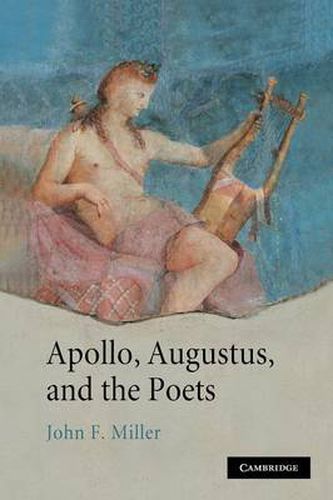Readings Newsletter
Become a Readings Member to make your shopping experience even easier.
Sign in or sign up for free!
You’re not far away from qualifying for FREE standard shipping within Australia
You’ve qualified for FREE standard shipping within Australia
The cart is loading…






Apollo’s importance in the religion of the Roman state was markedly heightened by the emperor Augustus, who claimed a special affiliation with the god. Contemporary poets variously responded to this appropriation of Phoebus Apollo, both participating in the construction of an imperial symbolism and resisting that ideological project. This book offers a synoptic study of ‘Augustan’ Apollo in Augustan poetry. Topics explored include the divine self-imaging of late Republican rivals for power, poetic imaginings of Apollo’s intervention at the pivotal battle of Actium, how poets ‘read’ Augustus’ new Palatine Temple of Apollo and the deity’s role in the reconstituted Saecular Games, and Apollo’s key position in the emerging dialectic between poetics - as traditional divine patron of music and literature - and politics - as patron of Augustus. Discussions encompass the major Latin poets (Horace, Virgil, Tibullus, Propertius, Ovid) as well as anonymous voices in poetic lampoons, encomia, and contemporary Greek verse.
$9.00 standard shipping within Australia
FREE standard shipping within Australia for orders over $100.00
Express & International shipping calculated at checkout
Apollo’s importance in the religion of the Roman state was markedly heightened by the emperor Augustus, who claimed a special affiliation with the god. Contemporary poets variously responded to this appropriation of Phoebus Apollo, both participating in the construction of an imperial symbolism and resisting that ideological project. This book offers a synoptic study of ‘Augustan’ Apollo in Augustan poetry. Topics explored include the divine self-imaging of late Republican rivals for power, poetic imaginings of Apollo’s intervention at the pivotal battle of Actium, how poets ‘read’ Augustus’ new Palatine Temple of Apollo and the deity’s role in the reconstituted Saecular Games, and Apollo’s key position in the emerging dialectic between poetics - as traditional divine patron of music and literature - and politics - as patron of Augustus. Discussions encompass the major Latin poets (Horace, Virgil, Tibullus, Propertius, Ovid) as well as anonymous voices in poetic lampoons, encomia, and contemporary Greek verse.